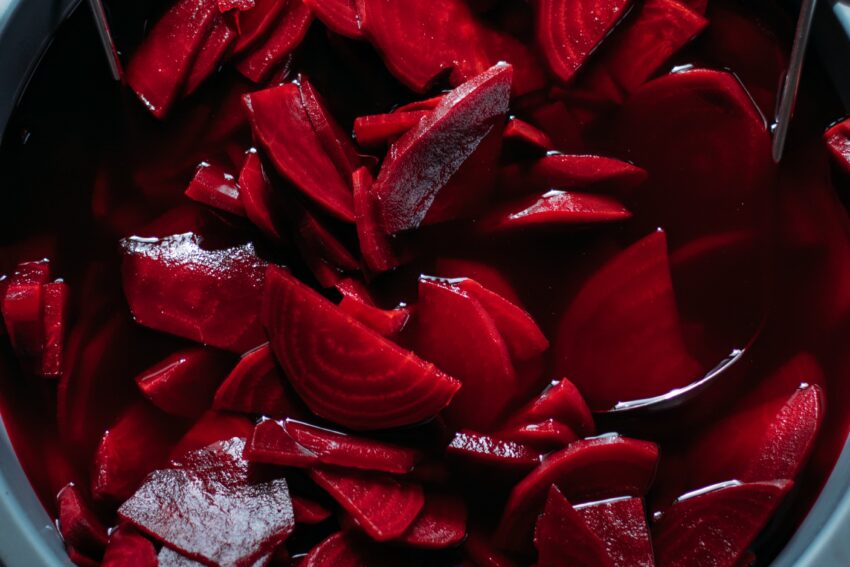Beetroot Benefits: The Powerhouse Root Vegetable beet’s health benefits
Beetroot, also known as beets, is a root vegetable with leaves in the upper part and roots found underground. There are thousands of beets health benefits.
Beetroot has a rich history of its own. Beets not only have a delicious taste; it are also a powerhouse of energy that is full of essential nutrients and unique compounds that are very effective for your overall health.
In this comprehensive article, we will thoroughly review the numerous beets benefits for you and how to add it to your diet to further enhance the pleasure of eating beetroot and also beets health benefits.
Nutritional Profile of Beetroot
Nutritional composition of beetroot: Beetroot is a vegetable that is low in calories and it does not cause obesity or belly fat valuable vitamins and minerals are very high in beetroot. The nutritional composition of 100 grams of beetroot is given below.
- Calories: 43g
- Protein: 1.6 grams
- Fat: 0.2 grams
- Carbohydrates: 10 grams
- Fiber: 2.8 grams
- Vitamin C: 8% of the RDI (Recommended Daily Intake)
- Folate (Vitamin B9): 20% of the RDI
- Potassium: 325mg (9% of the RDI)
- Magnesium: 23mg (5% of the RDI)
- Iron: 4% of the RDI
Beets also contain nitrates and pigments which further add to their nutritional value
“Beets Health Benefits in our body”
1. Supports Cardiovascular Health
Beetroot can support cardiovascular health. Beetroot benefits contain high amounts of nitrates, which are converted into nitric acid in the body, which helps dilate blood vessels, improves blood circulation, and also lowers blood pressure, so this way beetroot improves your heart health.
Many studies have shown beets health benefits, the beetroot juice significantly lowers blood pressure and is a natural remedy for hypertension.
2. Enhances Athletic Performance
Beetroot benefits have performance-enhancing properties, especially athletic and fitness performance. Athletes and health-conscious add it to their daily routine because of this property.
Beets health benefits, Nitrate in beetroot helps to increase the function of mitochondria in human cells. Mitochondria which is very important for human survival, is also known as the powerhouse of the cell. Its main function is to generate energy, which is very important for energy cells, which increases stamina and endurance. Drinking beetroot juice before exercise increases overall exercise performance and reduces fatigue is the part of beets health benefits.
3. Boosts Brain Function
The nitrate found in beetroot benefits, which produces nitric oxide in the body, is very beneficial for mental health. And because of this beet health benefits, the blood vessels are wide and the blood flow in them is fast, so the blood supply to the brain is available.
Beets benefits relieve the symptoms of age-related memory loss and studies also show that beetroot juice improves blood flow to the brain. Beets health benefits, beetroot juice reduces the risk of many mental illnesses, especially dementia and neurodegenerative diseases.
4. Anti-Inflammatory Properties
Betalains, which give beetroot its deep red color and have strong anti-provocative properties, are copious in the vegetable.
Beets’s health benefits help to protect them, Numerous diseases, including cancer, autoimmune illnesses, and heart disease, are linked to chronic inflammation.
Beet’s benefits can help reduce irritation and lower your risk of increasing chronic diseases if you include it in your diet.
5. Supports Digestive Health
Beet’s benefits are a good source of fiber, which is helpful for a healthy digestive system. Beets health benefits help support a healthy gut microbiome, help prevent constipation, and promote healthy digestion when consumed regularly. Fiber mostly controls glucose levels and can increase board weight.
6. Detoxification and Liver Health
Compounds like betaine found in beetroot and beets benefits support liver function and help in cleansing. The liver is answerable for removing poisons from the body, and consuming beetroot can upgrade its capacity to do so effectively. Additionally, Beet’s health benefits protect the liver from redness and oxidative damage.
7. Antioxidant Powerhouse
Beetroot benefits are high in antioxidants, which protect cells from oxidative damage caused by free radicals. Vitamin C, manganese, betalains and other antioxidants found in it help fight against oxidative stress and reduce inflammation.
And significantly beets health benefits help reduce the risk of chronic diseases such as cancer and heart disease. Beetroot is loaded with antioxidants, which protect cells from oxidative damage caused by free radicals.
Antioxidants beets health benefits like betalains, vitamin C, and manganese help combat oxidative stress, reduce inflammation, and lower the risk of chronic diseases such as cancer and cardiovascular disease.
8. Supports Healthy Skin

Antioxidants and anti-inflammatory properties are found in beets to improve beets benefits also benefit the skin. Most of the consumption of beets health benefits is very helpful in protecting our skin from damage, slowing down the aging process, and maintaining a healthy complexion.
The vitamin C present in beetroot is particularly beneficial for the production of collagen, which maintains the skin’s elasticity, firmness, and beauty.
9. Improves Immune Function
Beetroot is high in vitamins and minerals that help the immune system function. A strong immune system requires iron, folate, and Vitamin C, Beets have all of these nutrients. Beetroot benefits, consumption regularly can help improve overall health, lower infection risk, and strengthen the immune system.
10. Regulates Blood Sugar Levels
Beets benefits can help regulate blood sugar levels and have a relatively low glycemic index despite its natural sweetness. Beetroot benefits have a high fiber content and prevent spikes in blood glucose levels by slowing down sugar absorption, because of this beet benefit it is a good food for diabetics and people who want to control their blood sugar.
How to Add Beetroot to Your Diet? Enhance beets health benefits
How To Relish Beetroot and Beets Health Benefits? How to include beetroot in your daily diet and take the beetroot benefits?
Raw Beetroot
- Salads: Grated or thinly sliced raw beetroot in salads for a crispness and color pop.
- Beetroot smoothies: Add raw beetroot to fruits & veggies while blending to prepare a wholesome drink wastage of beet fiber is negligible with this beet’s benefits. functionality, and Easy digestion of smoothies.
Cooked Beetroot
- Roasted: Roast beetroot with some olive oil, salt, and pepper for a tasty side and take beetroot benefits.
- Soup: To include them in your diet, you can use Beets benefits as a base for healthy soups like borscht — the traditional dish of Eastern Europe.
- Steamed: Steaming is a much better option, I use a steamer to steam beets for my salads to inhale the beets’ health benefits. Streamed or boiled and then added in the dishes that we cook.
Beetroot Juice
- Pure Juice: Drink fresh beetroot juice alone or mix with other vegetable juices for a veggie-rich beverage and to take a beets benefit.
- Smoothie Print: Include beetroot juice in your go-to smoothie recipes for added beets health benefits.
Pickled Beetroot
- Chipotle and Pickling Paste: Use chipotle lime paste for an added zing in marinades, mayonnaise or drizzled over veggies.
- Mango Peach Chutney: Easy to make mango peach chutney which is sweet yet spicy with Indian spices!
Beetroot Powder
- Smoothies and Shakes: You can add the beetroot powder to smoothies, shakes (of course), or even pancake batter for a healthy hit.
- Baking: Beets benefits replace unhealthy food colorings with beetroot powder to create beautiful coloring in baking recipes and add nutrients.
Besides the beets health benefits, Adverse Effects and Concerns
There are dozens of beet health benefits. Beetroot is generally safe and healthy for most people but also beet intake of more than enough amount can cause danger, there are some things to consider:
Beeturia
Beeturia is a condition in which urine becomes pink or red after eating beetroot, and occurs at the tip of the hair. This is perfectly fine and it simply means your beetroot has pigments in them.
Oxalates
The consumption of beet can exacerbate kidney oxalates and contribute to the formation of stones in patients who are prone to this. if you have a history of kidney stones, it probably is wise to keep the beet intake moderate and consult your healthcare professional.
Allergies
Allergic Reactions: It is uncommon but some people might be allergic to beet. If you find yourself suffering from allergies such as itching, swelling or trouble breathing due to beets then notice your doctor.

